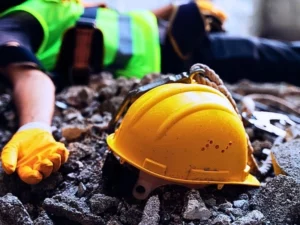Illinois workers’ compensation provides vocational rehabilitation for seriously injured workers who can’t return to their previous jobs. Designed to limit an injured worker’s loss of earning capacity, services may include job search counseling, assisting with a job search program, and retraining and education at an accredited learning institution.

Vocational Training for Injured Workers
Workers in Illinois who sustain work-related injuries are entitled to workers’ compensation benefits. These benefits typically cover loss of income, medical expenses, and rehabilitation costs. If a worker is so seriously injured that physical or mental limitations make returning to his/her job impossible, the worker is entitled to receive vocational rehabilitation services. Under the Illinois Workers’ Compensation Act, an employer must pay for the physical, mental, and vocational rehabilitation of the employee, including all incidental expenses and maintenance costs.
Vocational rehabilitation is designed to return an injured employee to work within his/her physical and mental capabilities. The goal of vocational rehabilitation is to limit an injured worker’s loss of earning capacity. Assistance with job searches, vocational retraining, and education is provided.
Injured workers in Illinois are generally entitled to vocational rehabilitation when work-related injuries cause a reduction in their earning capacity. Other determination factors may include:
- Loss of job security
- Training capability due to age and education
- Likelihood of new employment after training
- Claimant’s ability to undergo the necessary vocational training program
- Claimant’s successful or unsuccessful retraining in the past
- Claimant’s work-life expectancy
People between the ages of 16 and 64 who are disabled but able to work are eligible for vocational rehabilitation services in Illinois. Eligibility includes substantial physical or mental impairment that creates difficulties for working in a current job. Specialized Illinois vocational rehabilitation services are provided for people who are blind or visually impaired, deaf or hard of hearing, and Hispanic or Latino workers with disabilities.
Vocational Rehabilitation Benefits
Employees who suffer serious work-related injuries that permanently limit their mental or physical abilities can benefit from education and retraining provided by the vocational rehabilitation program. For injured laborers with only a high school education and 20 years on the job, earning a good living in a new job may be a challenge. Sending such a worker to college for further education is likely to increase his/her earning potential and opportunities for advancement.
In a recent case, a machine operator sustained a serious hand injury that resulted in permanent disabilities. The worker had an Associates Degree from a local college, but her vocational rehabilitation counselor recommended that she return to college and get a Bachelor’s Degree in a different field of study. During a review of the worker’s claim, it was noted that returning to college for a BA degree would increase future job opportunities and earning capacity. The court found that the college plan was reasonable, and the insurance company was ordered to cover the costs.
In addition to paying for college education or job retraining, vocational rehabilitation services provide numerous other benefits including:
- Job counseling, guidance, and referral services
- Financial assistance while receiving services
- Personal assistance services
- Transportation to college or work during rehabilitation
- Reader services for blind or visually impaired workers
- Interpreter services for deaf or hearing impaired workers
Qualifying for Vocational Rehabilitation Services
Vocational rehabilitation programs are federally funded but run by each state. To qualify for services, an employee must have a physical or mental condition that substantially impedes his/her ability to work and be able to get a new job after rehabilitation. Vocational rehabilitation services typically begin with an assessment of the injured worker’s medical and vocational needs, then an individual plan that’s tailored to the worker’s specific needs is developed by a counselor.
Employees who receive Social Security Disability Insurance (SSDI) or Supplemental Security Income (SSI) are automatically eligible for vocational rehabilitation unless the disability is so severe that the employee will not benefit from a rehabilitation program. An Illinois work injury lawyer can explain specific conditions.
Once it is determined that an injured worker qualifies for vocational retraining, selected programs will be evaluated to determine whether they are appropriate. The duration of the proposed training program, its location, and its effect on the worker’s earning abilities will all be considered.
Illinois workers’ compensation lawyers often help injured employees get approved for vocational rehabilitation benefits that cover college. Under the Illinois Workers’ Compensation Act, vocational rehabilitation programs are paid for by the injured worker’s employer. There is no standard to determine provisions for vocational rehabilitation, but employees must make an effort to seek employment and show they are unable to secure work within their physical restrictions, or benefits may be terminated.







